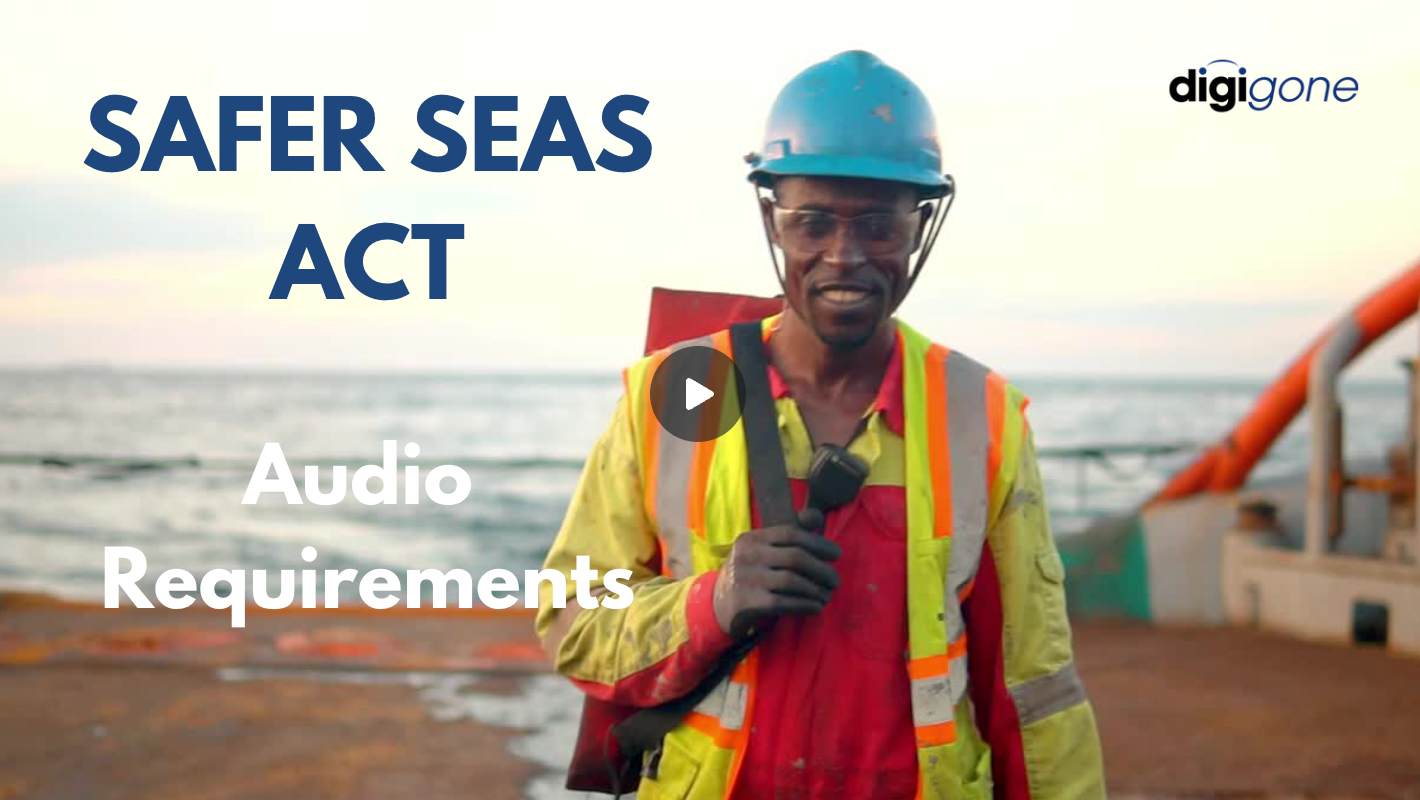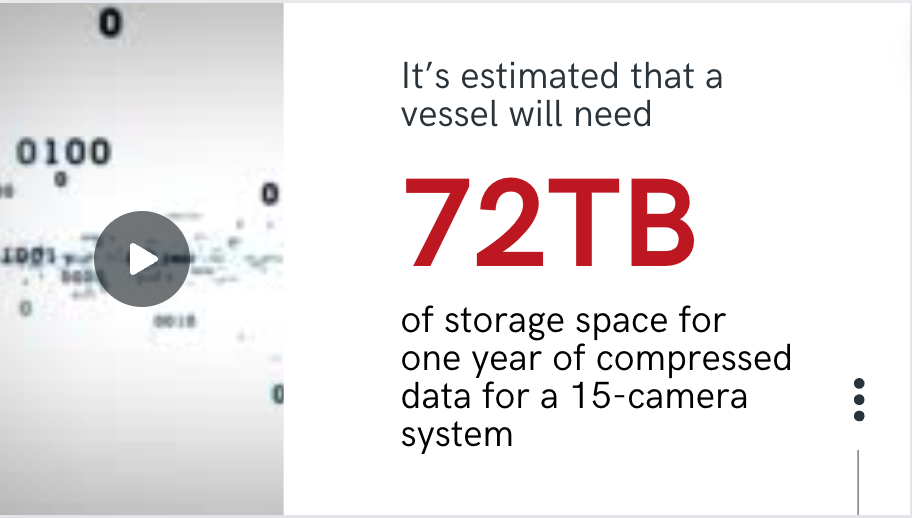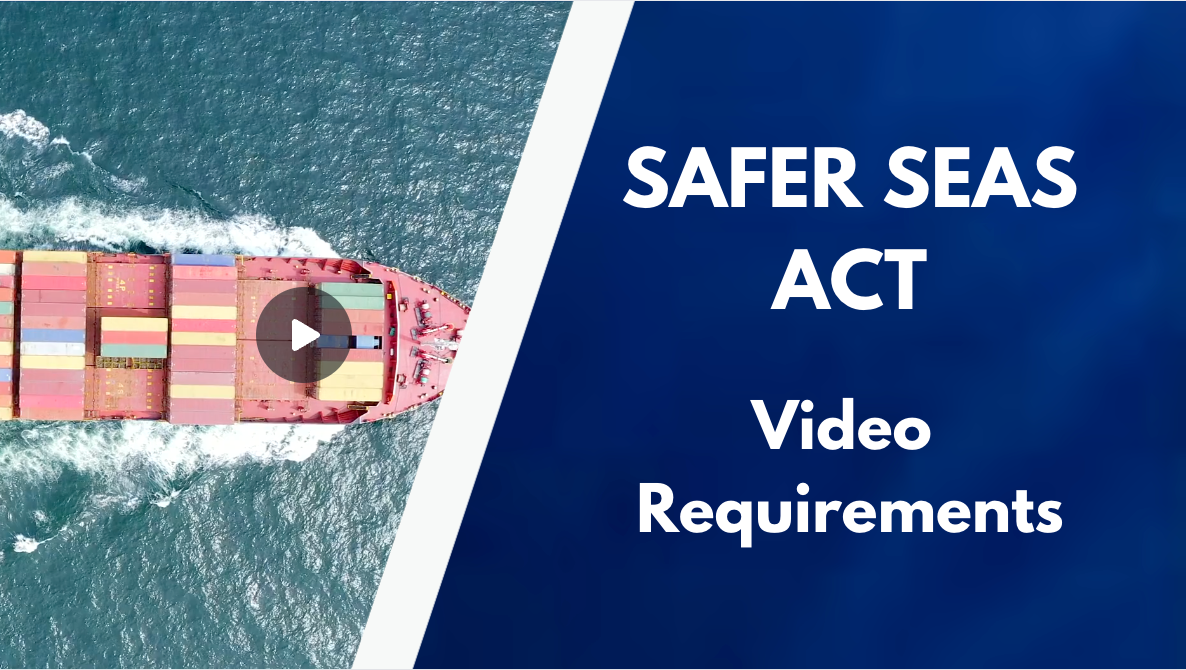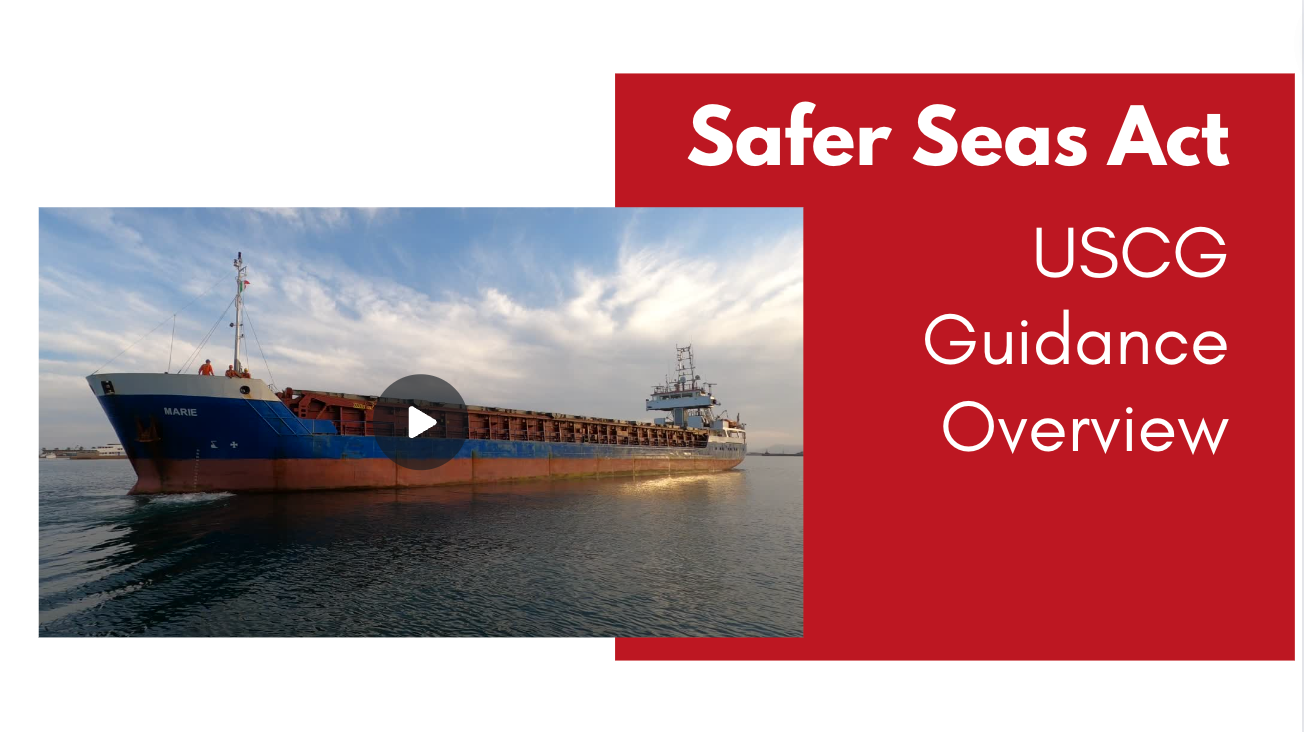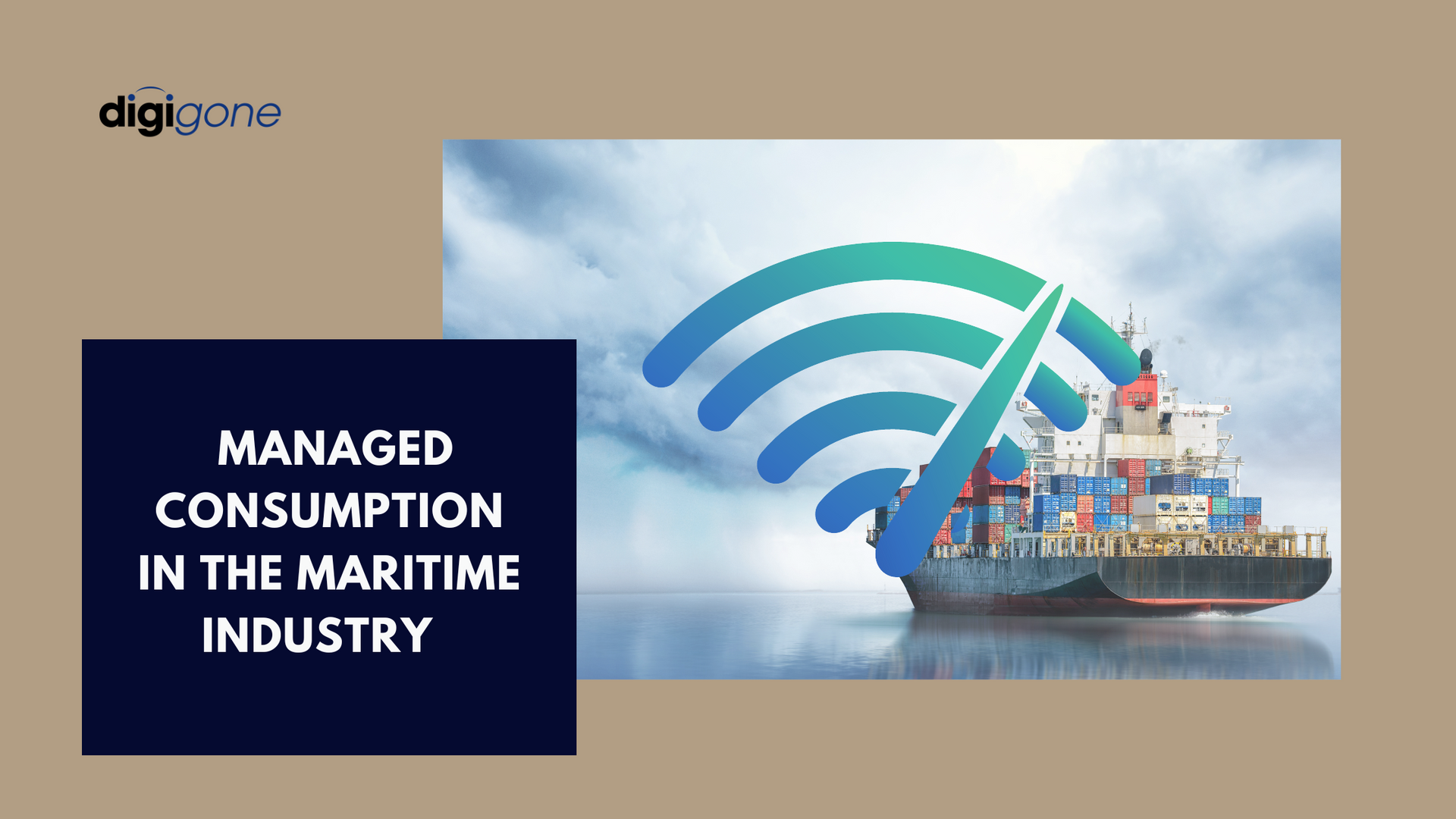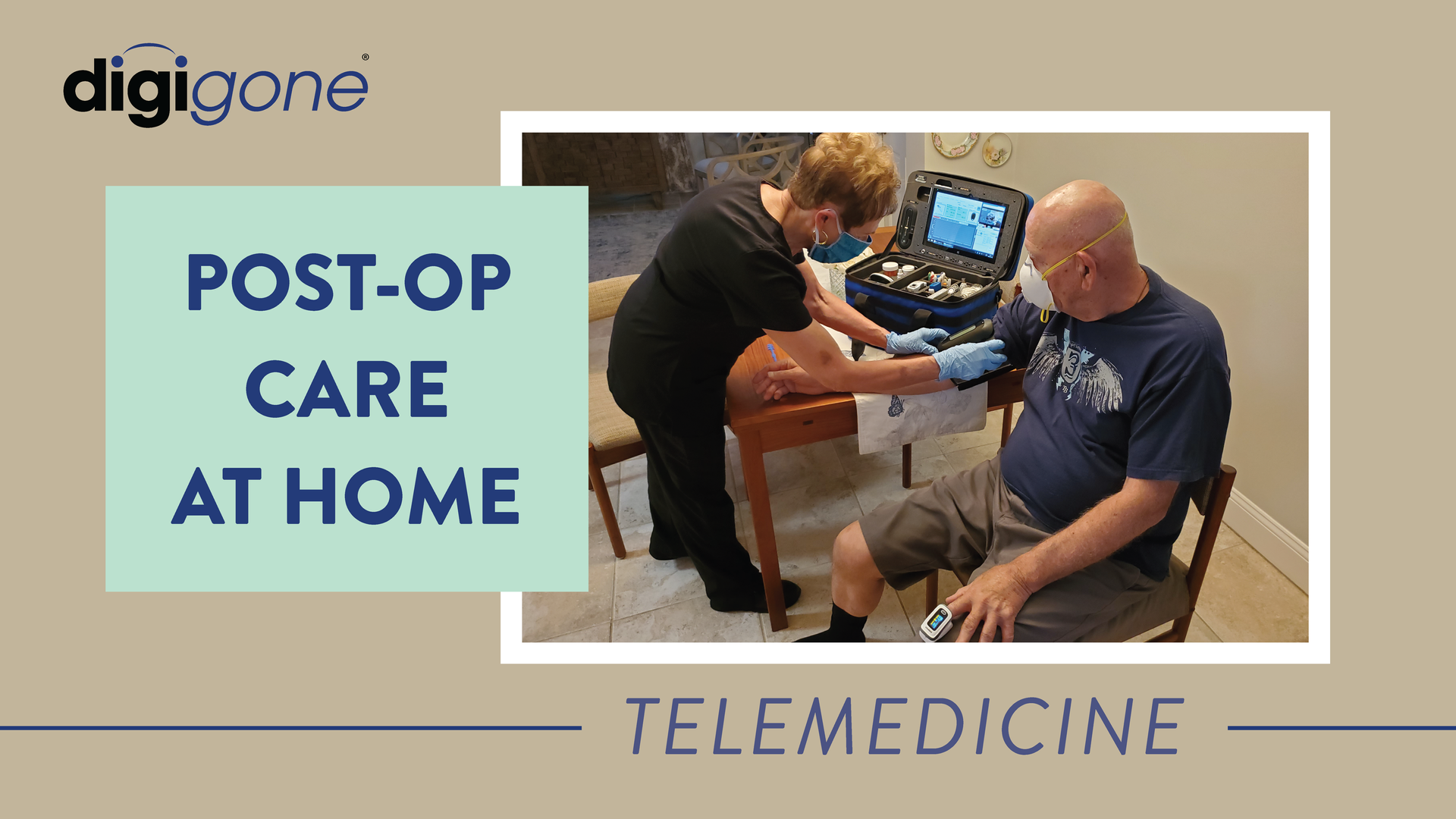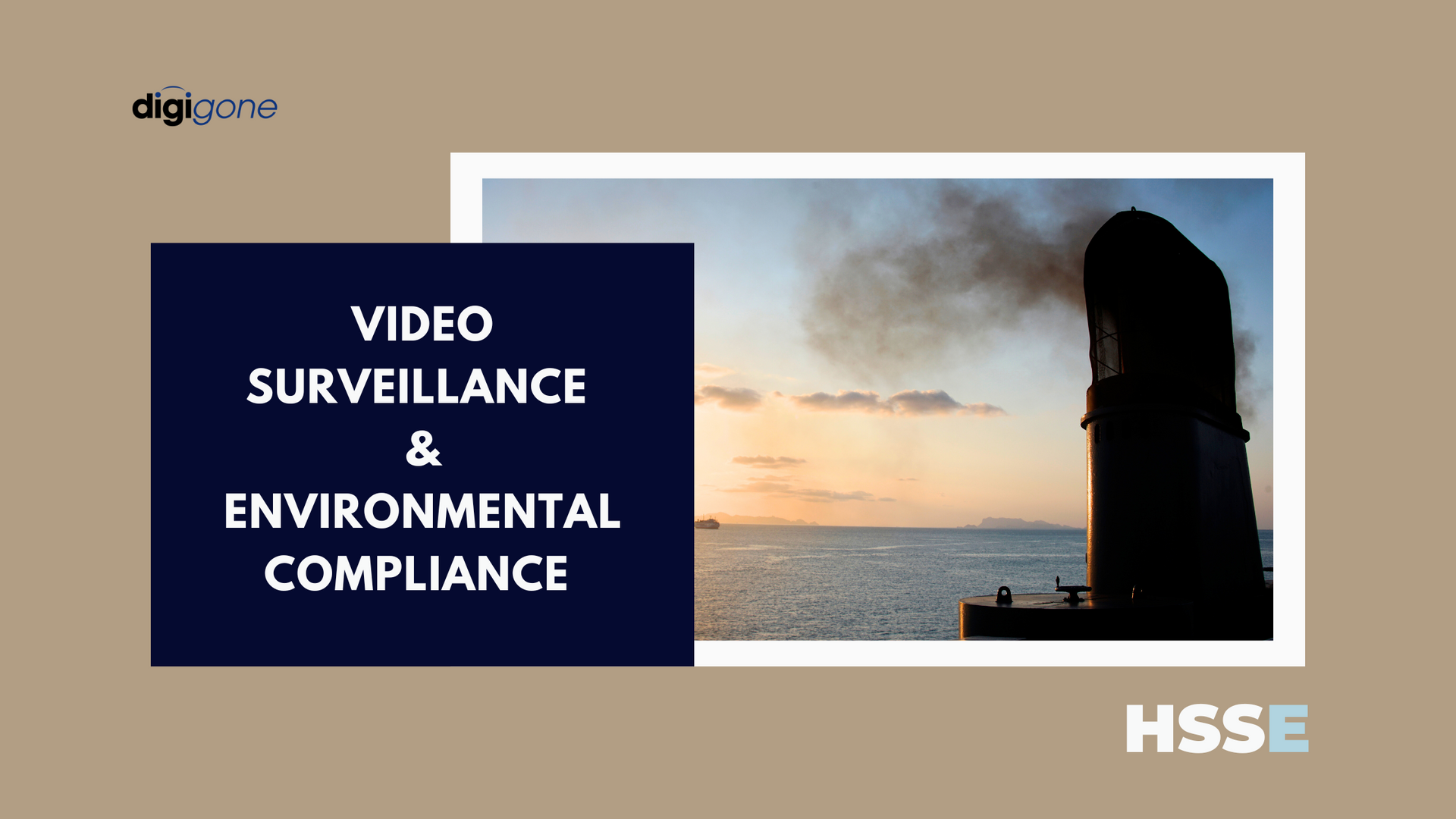7 Ways to Mitigate Risk by Addressing Chronic Fatigue in the Maritime Industry
Fatigue is deadly on a vessel. Through unwavering commitments and crew welfare policies, companies can help avoid unnecessary risks caused by fatigue.
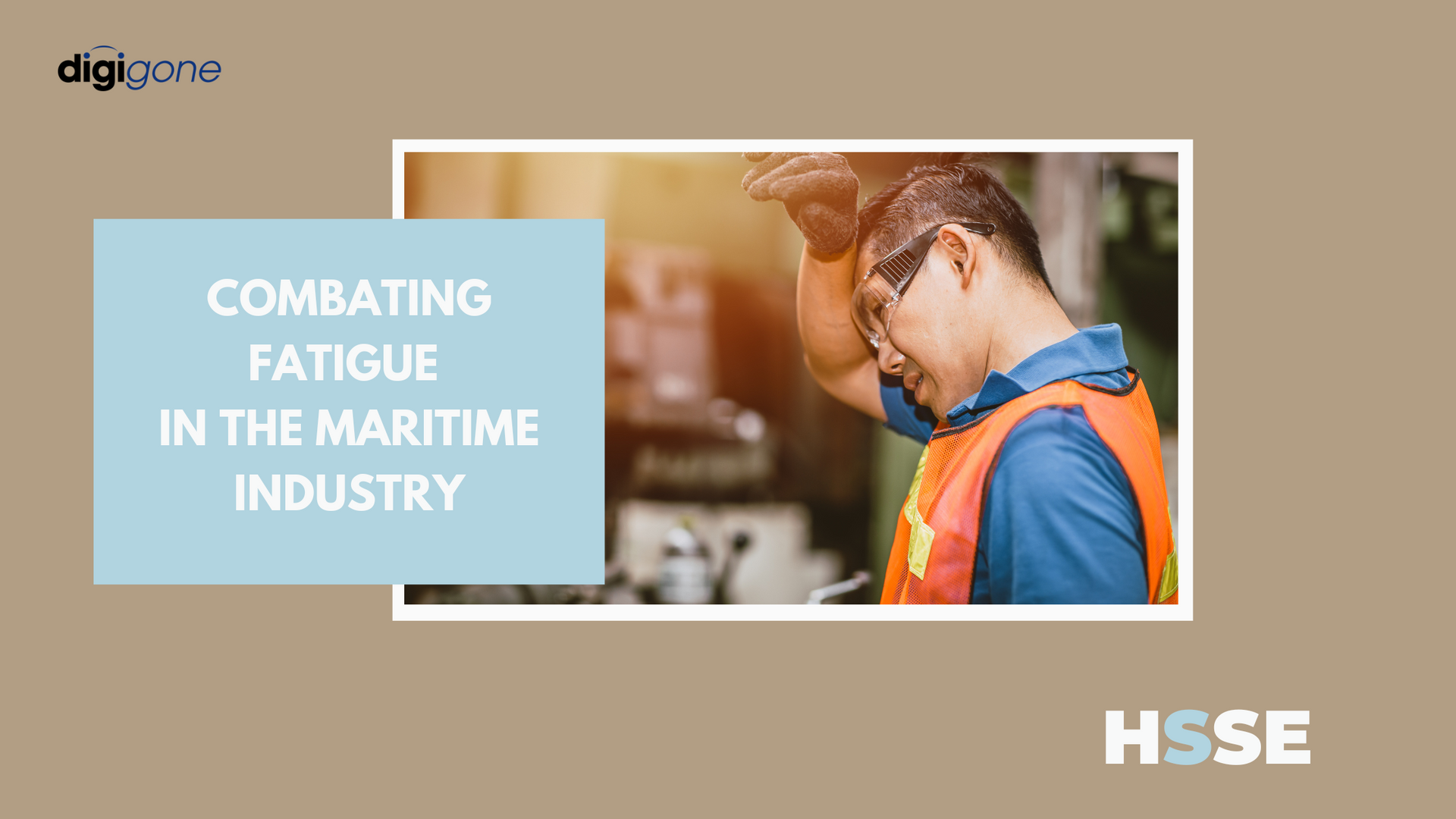
Chronic fatigue is a critical safety issue in the maritime industry. Seafarers contend with long shifts in stressful situations, with little downtime all while spending months in isolation which adds to fatigue.
The International Transport Workers’ Federation (ITF)
reported in a recent study fatigue that “Safety at sea is more likely to be endangered as crews are not fully alert. The desire for sleep can encourage the taking of shortcuts. Health suffers, now and in the future, through taking poor care of one’s physical and mental health needs.”
The ITF cited comprehensive research that shows one in four seafarers had fallen asleep while on watch. Additionally:
- Nearly 50% of seafarers reported working 85 hours a week or more (well above the 72-hour maximum threshold set by the ILO Maritime Labor Convention).
- Additionally, 50% reported their working hours were a danger to their personal safety.
- And 37% said their working hours sometimes posed a danger to the safe operations of their ship.
- Most tragically, the ITF reports that 25% of marine casualties are a result of fatigue.
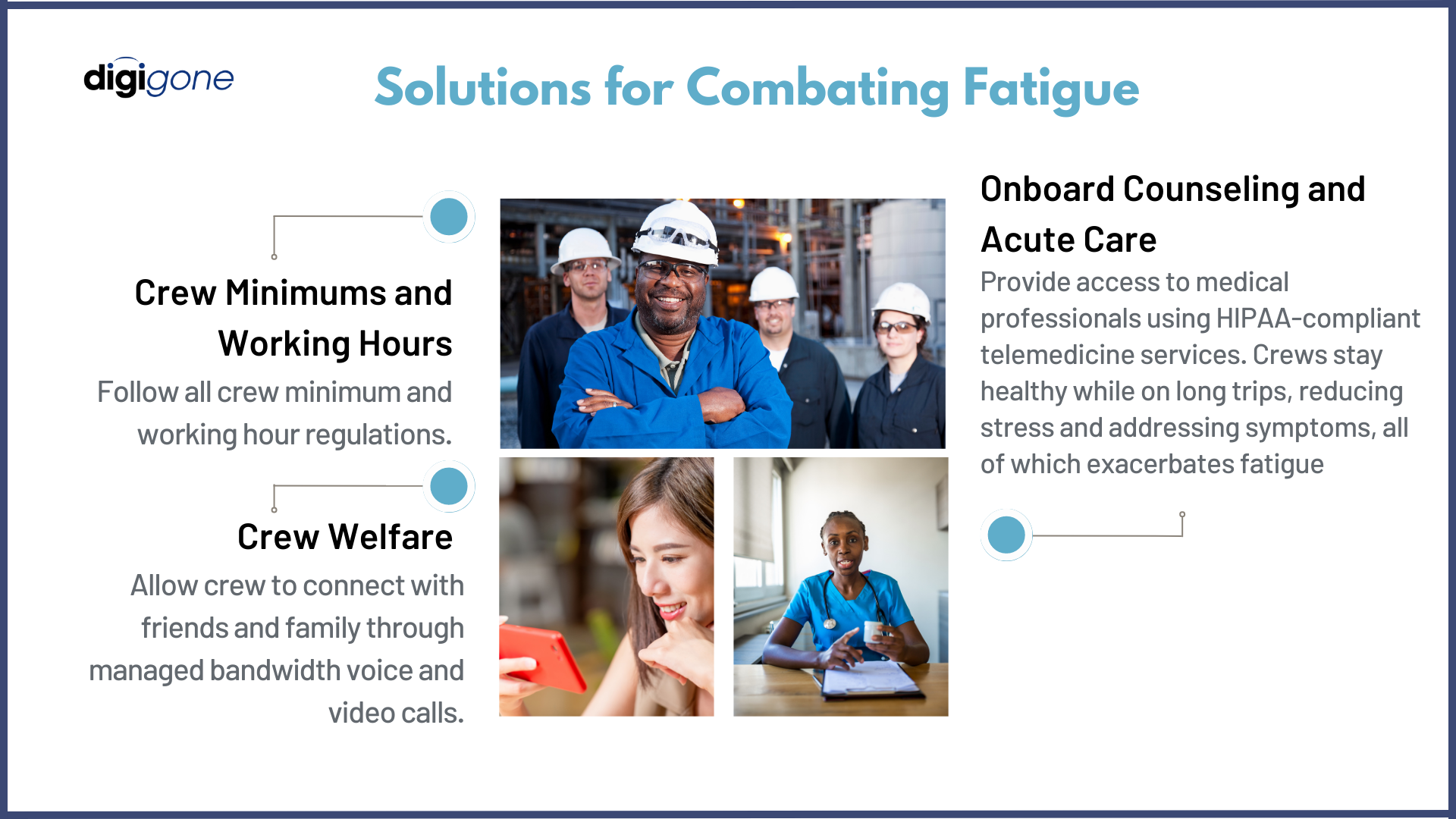
Fatigue also impairs performance and diminishes judgment and, according to the ITF, can worsen other common issues seafarers deal with like loneliness from lack of communication with friends and family and extended isolation.
How Companies Can Address Fatigue in the Maritime Industry
The ITF advocates for protocols to mitigate risks associated with fatigue on vessels. We’ve outlined these below (1 - 5) and have added a few others that are part of DigiGone’s area of expertise in the maritime industry (6 and 7).
1.Ensure safe crewing levels. The International Maritime Organization sets guidelines for the safe manning of vessels. Tonnage, routes, machinery and tasks are all variables that can affect the numbers. Shipping companies should carefully consider exceeding minimums in order to enhance safety.
2. Enforce maritime maximum working hours. The IMO regulates maximum working hours for crew, which includes 14 hours in any 24-hour period and 72 hours in any 7-day period. Shipping companies must ensure crews adhere to these prescribed limits.
3. Universal recognition of the right to shore leave. Shore leave is a basic human rights issue and something that really came to the forefront during the pandemic. The industry as a whole suffered greatly as mariners left the industry because of excessively harsh conditions. Going forward, shore leave and time off must be a priority for companies looking to retain and recruit top crews.
4. Prioritize a culture of safety on vessels. Management must demonstrate an unwavering commitment to safety that starts at the very top of the corporate ladder. Clear policies must be backed up with effective training and reporting to ensure a full circle of expectations, implementation and continuous improvement.
5. Fatigue must be treated as a serious health and safety issue. Fatigue can be fatal. Companies must set forth policies that are clear and explicit. And captains and crew need to be continuously briefed and trained on these policies.
6. Allow crew to connect with friends and family regularly. Fatigue is in part driven by the isolation and lack of social interaction at sea, coupled with long hours. Technology is now available to allow crews to connect via voice and video calls using managed bandwidth during their downtime. Connecting with friends and family can lift spirits and outlook, warding off feelings of malaise and depression, which exacerbate fatigue.
7. Provide onboard counseling and acute care through satellite telemedicine services. Telemedicine access made giant gains post-pandemic. Crews can connect with therapists or medical professionals in the privacy of their staterooms, either with the aid of a fully equipped, HIPAA-compliant telemedicine kit (for vital signs, neurological assessments, EKGs, etc.) or simply using a cell phone.
These seven essential safety issues aren’t just about creating a safer work environment, these are also about mitigating risk, which affects the bottom line. Kunal Patha is a loss prevention manager at Gard, a marine insurer. In the
article
Look after your seafarers and they will look after your ship Patha wrote:
“Where seafarers are well looked after and supported, with good onboard culture and work process, we see to a certain extent lower levels of claims.”
Investing in fatigue-prevention as a real safety issue through culture, training and protocols is simply critical.
DigiGone is a veteran-owned, service-disabled business based in Largo, Florida, providing custom, ultra-low bandwidth solutions in the maritime, oil and gas and mining industries. For more information visit digigone.com/crewchat to request a demonstration. Or email us at info@digigone.com, or call at 1-727-544-2327.

